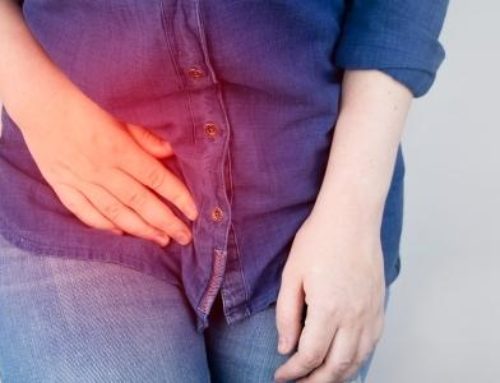
Do you ever get to the end of a weekend of eating out and feel a bit more sluggish in your gut? Do you find that you’re more sensitive to a dinner meal at a restaurant compared to when you eat the same thing at home?
You’re not alone! Many people find that eating out causes a disruption to their guts.
The trouble is, there are lots of aspects to a restaurant or takeaway meal that are different to what you make at home. Determining what you’re reacting to becomes very difficult.
These are some of the biggest reasons why your gut symptoms might change when you are dinning out.
Fat load
Chefs and cooks are most interested in making sure you enjoy the meal, which means a focus on taste and flavour… and that means fat. Fat makes food taste good. For this reason, meals at restaurants, cafes and takeaways are much higher in fat than what we make at home.
A high amount of fat in your meal means that there is more fat for your GI tract to process and break down. Fats often take longer to break down in the stomach, which can leave you feeling uncomfortably full, nauseas and can increase the risk of reflux, particularly if you’re not in the habit of having high fat meals.
In your small intestine, your gall bladder releases bile and your pancreas releases enzymes called lipases, both of which help to break down and absorb the fat. When you have a lot of fat enter your small intestine at one time, like after a rich or fatty meal, it’s difficult for the bile and lipases to manage. Some of the fat will pass through to your large intestine and move out with your poo. This can make your poo high in fat, which can mean that it’s a bit looser. If you already struggle with loose poos, this can make those symptoms worse… BUMMER!
Reduced fibre
Another common consequence of eating out is that the volume of fruit, vegetables, and wholegrains in meals at a restaurant or café is usually a bit lower than what you need to reach your fibre requirements. While having one meal that’s lower in fibre is not usually problematic for your gut health, it can change the consistency of your poo.
After a meal out, you might find that your poo is a bit harder to pass. Or if you have several meals out in a row, you might feel a bit constipated, which can exacerbate bloating, abdominal distension, cramping and pain. This can make identifying a possible intolerance more difficult, because if you get these symptoms in relation to particular foods (like FODMAPs) then being blocked up can create confusion.
Fluid balance
Another key component to a delicious meal out is salt! Cafés, restaurants and take–aways are always going to add more salt to their food that you would in your own cooking (unless you’re a salt fiend…which is a whole separate issue). This extra salt can affect your body’s fluid balance and your poo consistency.
When you eat more salt, your body absorbs that salt (sodium) into the bloodstream. To help balance the salt, your body also has to absorb more water. The body draws more water out of the intestines, which means there can be less to mix in with your poo. This can exacerbate constipation a day or so after eating out.
Changes to your routine
Unless you are eating out on a daily basis, going to a restaurant or buying fast food is an unusual event. Your body and your GI tract likes routine. So the very act of eating at a different time or eating a different volume of food can affect how your gut feels.
You might go out for lunch for a special occasion and eat a larger meal than you would normally have. Later on you might feel fuller and more bloated in the afternoon and you might not feel like eating a big dinner. If your main meal is usually dinner, this means that there is a bigger mass of food moving through your body at a different time of day to your normal patterns, which is going to feel different and even more uncomfortable than normal. You might find that you have a bowel movement at a different time and, when combined with the other factors mentioned here, can mean all sorts of crazy changes to your poo.
Increased spice
Many of the meals that we eat out contain a wide variety of spice to enhance the smell and flavour.
You know when you eat something spicy and it tingles or even BURNS in your mouth. That’s caused by capsaicin. It stimulates pain receptors in your mouth. Once you swallow (and drink a bucket load of water/milk/yoghurt) the pain subsides in your mouth. But the capsaicin continues it’s journey through your GI tract.
Chilli and spice can irritate the stomach, causing more churning and acid production. This can increase the risk of reflux and pain in your upper abdomen before the chilli reaches your intestines.
Luckily, our intestines don’t have the same pain receptors as what’s in your mouth, so you can’t feel the same burning sensation through your GI tract, but that doesn’t mean it’s not causing havoc. Your GI tract wants to get rid of the irritant, so it can rush the food through, causing diarrhoea. Then as it passes, your skin’s pain sensors on the outside of your bum are stimulated all over again, which can be a very uncomfortable experience.
You can imagine that if you suffer from tummy issues, chilli and spice can compound the negative symptoms.
Hidden and mixed ingredients
If you have ever watched a cooking show with professional chefs (MasterChef, I’m looking at you), you’ll know that there are A LOT of ingredients that can go into a meal. Marinades and sauces are a blend of loads of different aromatics (herbs/spices/garlic), sweeteners (sugar/honey/maple syrup/fruit), salty foods (cheese/soy/seaweed/stock) and acidic foods (citrus/vinegar/sour cream/yoghurt).
When all of these ingredients are mixed and matched into delicious combinations in the kitchen of a restaurant, it can be very hard to know exactly what you’re eating. And if you DO have an unpleasant reaction to a meal, you could end up blaming the wrong ingredient.
For instance, you may have a beautiful bowl of carbonara at an Italian restaurant. It’s delicious and you’re very satisfied. Then a few hours later you start to feel uncomfortable in your stomach. You think ‘Oh no! I’m having a reaction to that pasta meal. Maybe I am intolerant to gluten.’ While gluten may be the culprit, your body may actually be reacting to the garlic or the cream or the sheer volume of the meal.
For this reason, when you’re trying to figure out what contributes to your gut symptoms, it’s important to track your food and symptoms for a period of time. There are too many variables in one meal to really see a pattern and trying to remember exactly what you ate and all of your symptoms.
Do I have to avoid eating out for my gut health?
The short answer to this is…no. If you’re having the occasional meal out (1 per week), none of these things are problematic for your gut health. However, if you find you are regularly relying on meals prepared out of the home, you are more likely to experience regular GI symptoms, and you may be missing the right balance of fibre to feed your gut bacteria and support gut health.
If you’re not sure whether eating out is driving your gut issues or if there are underlying sensitivities, get in contact. Our team of Accredited Practising Dietitians can help.



